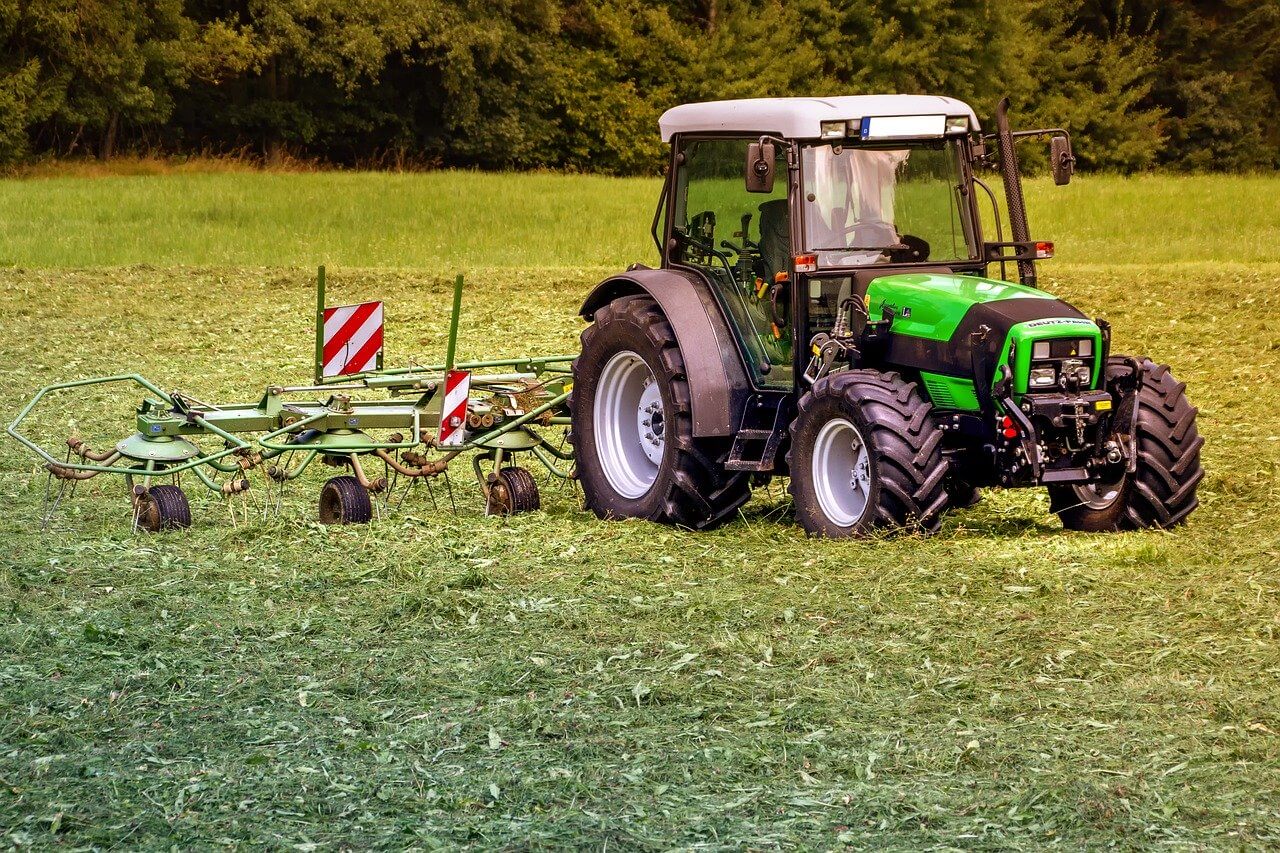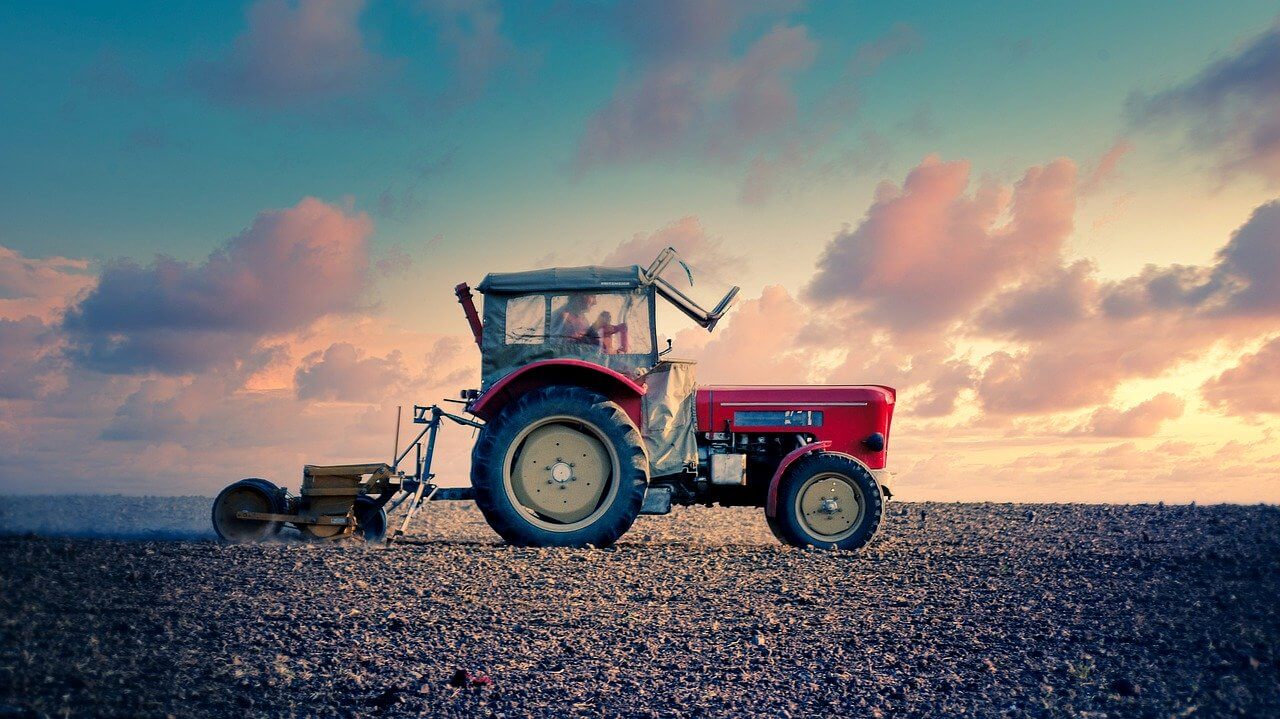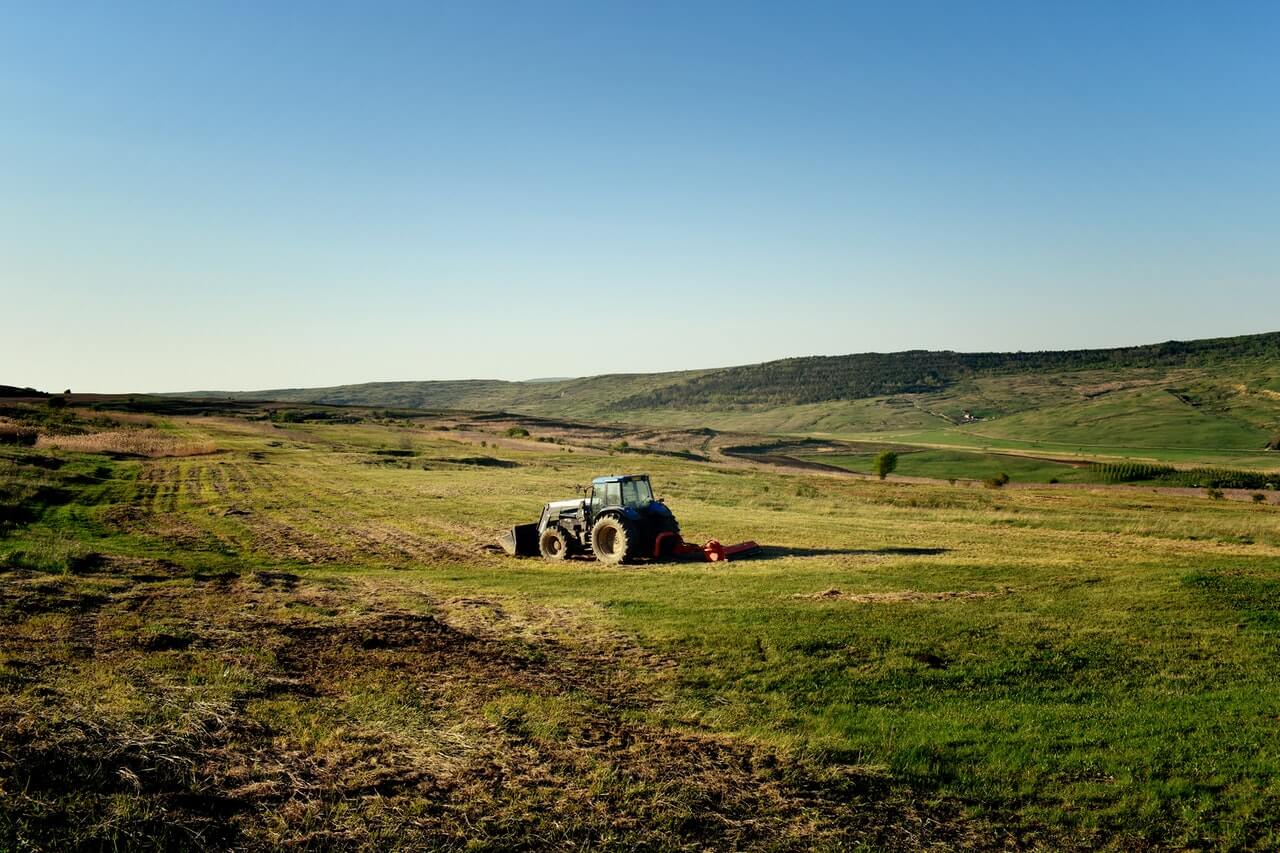There are lots of different options available in tractors of all sizes and capabilities. When selecting the right tractor for your property, there are a number of different factors you must keep in mind. One of the most frequently asked questions is “What size tractor should I get?”, or even more specifically “What size tractor do I need for 20 acres, or more or less”.
The answer to this question depends very much on the size of property you have and the types of tasks you have at hand. It’s important that you not buy a tractor that is too large or too small for your property and your needs.
In this article, will discuss the things you should keep in mind when choosing the right size tractor for your property. Read on to learn more.
What You'll Learn Today
5 Tractor Types

Tractors come in several classifications geared specifically to purpose and expectations. These machines differ in features offered, size, weight and horsepower. Each category is suited to a particular property size and task list.
1. What size tractor do I need for 1 – 2 acres?
Lawn tractors are intended for small jobs around the yard. The main purpose of a lawn tractor is mowing. These small machines feature electric power take off (PTO) and a small, 2 or 3 gallon fuel tank.
They are easy to maneuver around the standard yard and have tires that don’t tend to leave lots of tracks and marks in the lawn.
A lawn tractor with a 14 hp engine and a cutting width of 42 inches is perfectly adequate for up to an acre of lawn. If you have more than an acre but under 2 acres, look for a machine that has a 16 hp engine.
2. What size tractor do I need for 3 – 10 acres?
Garden tractors are good for mowing, and they are also meant for heavier jobs on slightly larger properties. They usually have attachments that allow you to move snow, haul and dump small loads, spread seed, fertilizer or pesticide, till, plow, cultivate and much more.
A garden tractor usually has a 5 or 6 gallon fuel tank, PTO and a hydraulic clutch. It may have four-wheel-drive and enough power to tackle heavy jobs such as hauling manure out of the barn, carrying feed to animals and so forth.
Garden tractors are excellent for very large yards consisting of three or more acres. These small tractors are typically a little bit more rugged than your average lawn tractor, and their wheels are more aggressive. Look for a machine that has a 15 to 29 hp engine. It should have a cutting width of 46 to 54 inches.
3. What size tractor do I need for 11 – 20 acres?
Compact and sub-compact tractors usually have 2 or 3 cylinder diesel engines and fuel tanks that can hold between 6 and 8 gallons of diesel fuel. These small tractors often have four-wheel-drive and are easy to maneuver and operate on slightly larger properties.
- Subcompact tractors typically have between 25 and 35 hp engines and are excellent for use on properties between 5 and 10 acres.
- Compact tractors typically have between 35 and 50 hp engines and are the right choice for properties between 10 and 20 acres.
- Both types of machines have lots of attachments to do a wide variety of farm work.
4. What size tractor do I need for 20 acres or more?
Utility tractors are larger, taller and more powerful than any of the machines we’ve mentioned so far. These tractors are intended to manage heavy duty attachments and handle difficult jobs such as clearing deep snow, digging post holes or handling large loads.
Utility tractors typically have engines with 45 or more horsepower and are ideal for larger properties of 20 acres or more. These serious farm machines are capable of handling heavy duty farm tasks such as manure management, disking in large (8 foot) sections and clearing land.
5. What size tractor do I need for commercial farming?
Farm tractors usually have greater than 85 hp and may have as much as 450 hp. They are typically run with a 4 to 6 cylinder diesel engine and are intended for professional, commercial farming. This type of tractor is not usually necessary for the small land holder.
In addition to all the bells and whistles a professional farmer could possibly want for performing all manner of heavy farm chores, these giant machines are also equipped with a comfortable enclosed cab complete with AC, heating, adjustable power seat, GPS, tilt steering wheel, sound system and much more.
These machines are perfect for farmers or farm workers who must spend all day long working great expanses of land.
6 Tips To Help You Choose Just The Right Tractor

1. Be clear on manufacturers’ specifications
It’s important to understand classifications may vary from one manufacturer to another. When you are tractor shopping, it’s wise to pay close attention to the exact specs of each machine you consider.
2. Know what you want and need
Aside from tractor specifications, you should examine your own specifications. One of the first things you should pay close attention to is your appetite.
It’s easy to be dazzled by a large and powerful machine, but if you are working a property of around 20 acres, you probably do not really need a professional farm tractor.
Having one will actually end up being a drawback to you in terms of expense, maneuverability and ease-of-use.
3. Get the right equipment for the job
If you have a lot of heavy earthmoving to do, a tractor may not actually what you need. Look for specific machinery designed for the purpose of earthmoving. Since this doesn’t tend to be an ongoing type of task, you’re probably better off renting equipment for this purpose than buying.
4. Balance HP with your abilities and the tasks at hand
If you’ve never had a tractor before and you have a property of about 20 acres with the typical everyday tasks involved in a small landholding, you may want to start out looking for a machine that has a 28 to 30 hp engine.
If your property is 20 acres or more, your tractor should have a minimum of 45 hp. If you need to be able to carry large loads of feed, multiple square bales of hay or round bales, look for a machine that has a minimum 50 hp engine.
A tractor of this size and strength will enable you to pull, plow, haul and cultivate without running into problems.
5. Plan implement use wisely
If choosing between having four-wheel-drive or not is on the table, it’s always better to have four-wheel-drive. It greatly facilitates use of implements.
If you need to use implements such as:
- Post hole diggers
- Greater blades
- Back blades
- Slashers
- Rippers
… look for a machine with a minimum of a 25 hp engine.
6. Always keep stability in mind
If your tractor is too heavy for you to handle or to light, it can become unstable. Always match your implements to the size, strength and weight of your tractor. Here’s a good video on that.
Take Your Time & Be Prepared For Tractor Shopping

It can be hard to find just the right size of tractor for your purposes and for the size and type of land you have. Start out by clearly outlining the tasks you have at hand. This is a good starting point for making the right choice.
Follow-up by thinking about the attachments you’ll need, the type of engine that will be equal to those tasks and the amount of horsepower necessary for success.
Even if you are planning to buy used, a very good way to get an idea of what you want is to visit a local dealership and test drive a few tractors. Take your time and consider all the variables.
Be sure that the machine you choose is large enough and powerful enough to handle the tasks you plan without being so large and powerful that it overpowers you and your property.
Having said that, if you’re looking at two options that are very similar other than power, always go for the machine that has more power.
If possible, can you write something about the relationship between the tractor’s size and fuel consumptions?
The relationship between tractor size and fuel consumption is a complex topic that brings into play many different variables, such as lay and condition of the land, the weather, the job at hand, tractor age and maintenance, make, model and so much more.
The Farm Progress website offers a tractor fuel consumption calculator that you may find helpful.
https://www.farmprogress.com/tractors/how-calculate-your-tractors-fuel-efficiency
Additionally, you may find this report from the University of Nebraska useful.
https://digitalcommons.unl.edu/cgi/viewcontent.cgi?article=1496&context=biosysengfacpub
I have a Case JX75T tractor, 54.4Kw, which I use on my 20 acre field. I am in the process of buying a Monosem planter is it able to carry a four-row single frame planter?
Hi Sam,
My name is Pat Batantou. I’m contacting your for some helps (answers to a couple of questions.)
1. What size of tractor do I need for farming (clearing, plowing, tilling or arrowing) on a land of 10,000 hectares?
2. What size of tractor do I need for farming (clearing, plowing, tilling or arrowing) on a land of 25,000 hectares?
3. If you were at place, which tractor would you prefer, John Deere or Kubota?
4. Do you know a tractor mechanic who can help me check a use tractor when I’ll buy it?
Many thanks for your time and Consideration.